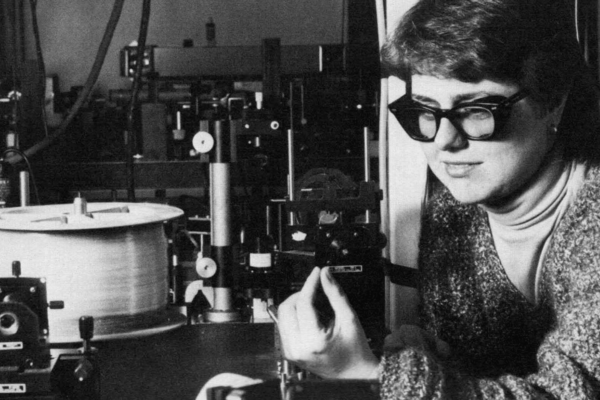
Bringing gaming to the classroom:
Online tournaments reinforce concepts taught in organic chemistry class, says Waterloo lecturer.

Online tournaments reinforce concepts taught in organic chemistry class, says Waterloo lecturer.
By Beth Gallagher Communications and Public AffairsYou should be studying organic chemistry but there are so many other things to do and then, of course, there is sleep.
 Would an online game that allows you to compete against your classmates inspire you to learn those tough concepts?
Would an online game that allows you to compete against your classmates inspire you to learn those tough concepts?
Steven Forsey, who has been teaching organic chemistry for almost ten years, says it does.
“Organic chemistry is like a new language for students so they have to hit it over and over. These tournaments give students a reason to do practice questions when they’re outside of the classroom,” he says.
Chemistry with your smartphone
Forsey created 780 practice online questions for students to access from their cell phones, tablets or laptops anywhere, anytime. The tournaments happen at scheduled times, usually on Sunday or Monday evenings, but students are encouraged to go online and practice frequently before the tournaments.
“There are very keen students who are practicing on the game all the time,” says Forsey.
This past term about 60 per cent of Forsey’s 200 organic chemistry students took part in the tournaments which involve answering 40 questions in 45 minutes.
Healthy competition
“The tournaments also simulate the pressure of the exam.” says Forsey. “They have a minute to answer these questions. Can they answer them quickly? It gives them a good sense of whether they really know the concepts.”
For Forsey, the organic chemistry game is just another way to engage students in learning, especially outside the classroom.
“It just makes it more enjoyable for students, especially those who love the gaming aspect and competition.”
The questions can be difficult, says Forsey. “Conceptually, they can be very difficult.”
This semester, the tournaments were bonus marks for the students because Forsey was testing the new technology. In the fall, the tournaments will be worth five per cent of the final grade. Students who do not take part in the tournaments will have the five per cent transferred to their final exam.
Forsey is working on the game with Top Hat Monocle, a company launched in in 2010 by two University of Waterloo graduates.

Read more
Here are the people and events behind some of this year’s most compelling Waterloo stories

Read more
Waterloo researchers have developed a new quantum computing approach that brings science closer to simulating the early universe

Read more
Celebrating Dr. Donna Strickland's chirped pulse amplification breakthrough that has reshaped science, technology, and everyday life over the last 40 years
The University of Waterloo acknowledges that much of our work takes place on the traditional territory of the Neutral, Anishinaabeg, and Haudenosaunee peoples. Our main campus is situated on the Haldimand Tract, the land granted to the Six Nations that includes six miles on each side of the Grand River. Our active work toward reconciliation takes place across our campuses through research, learning, teaching, and community building, and is co-ordinated within the Office of Indigenous Relations.